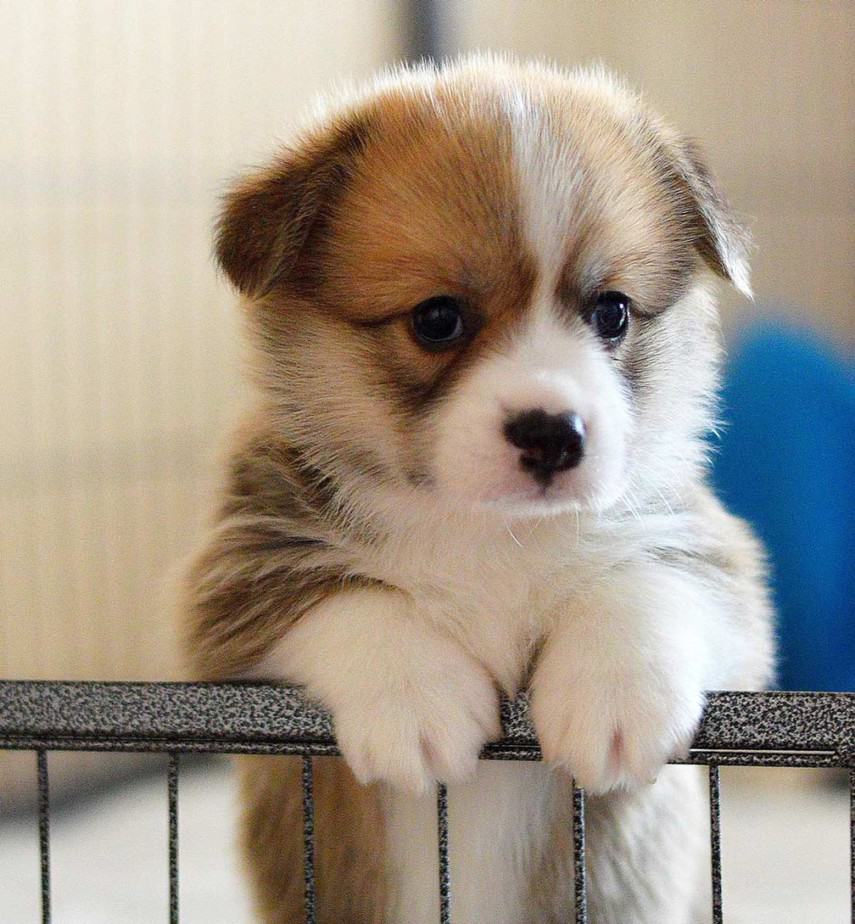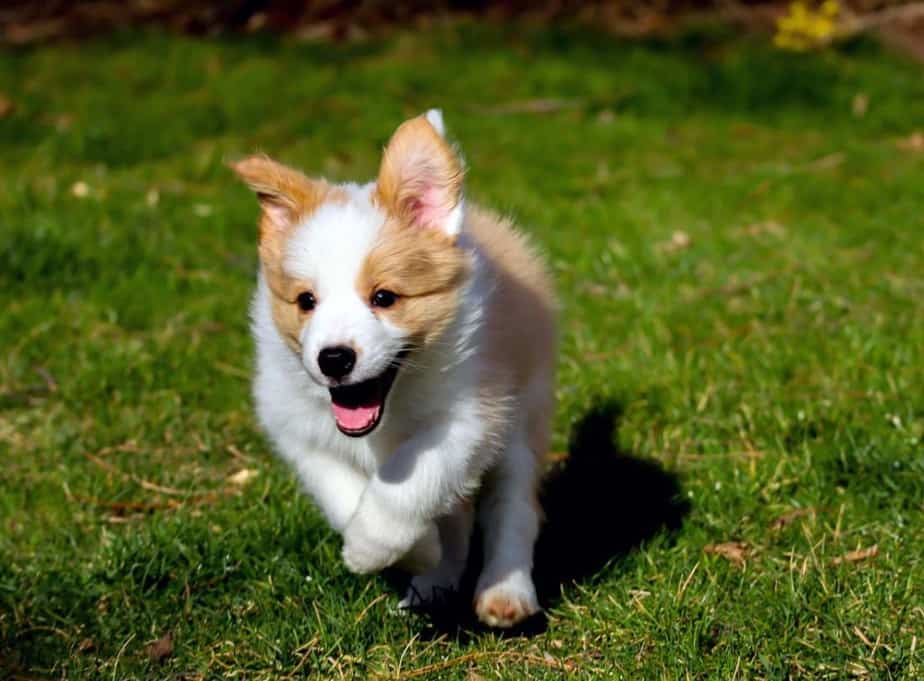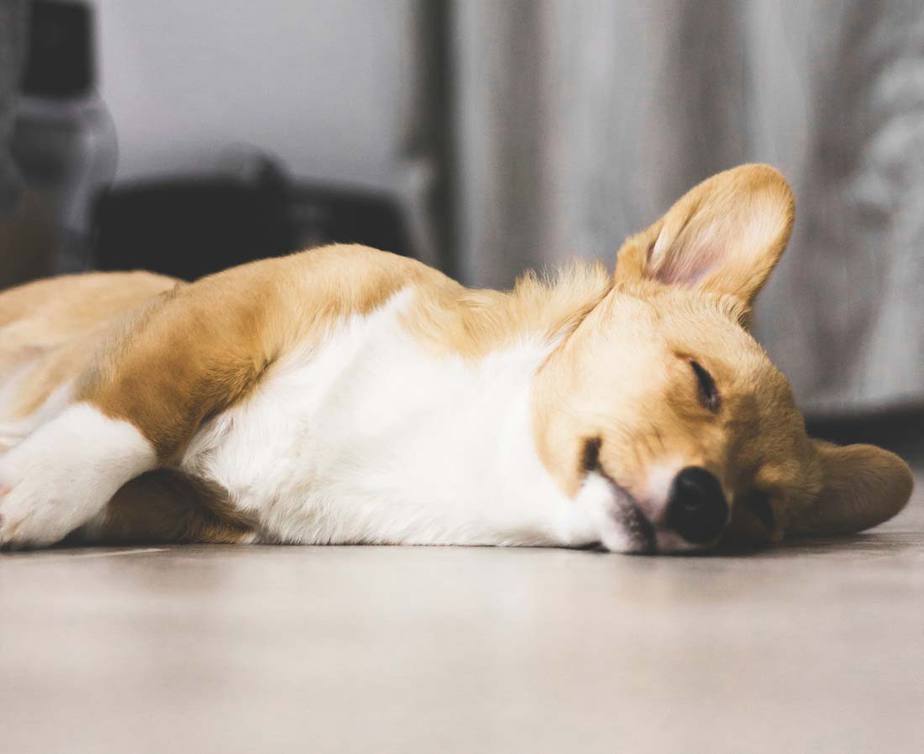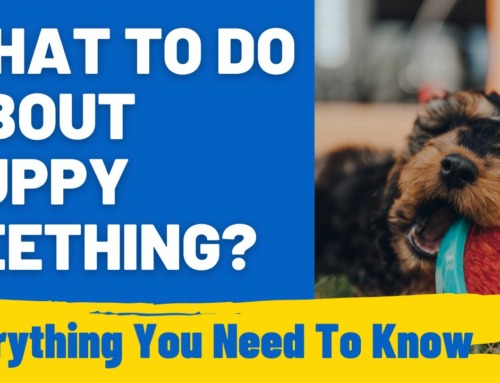Pembroke Welsh Corgi puppies are energetic, intelligent pets that will keep you busy… for about 4 to 6 hours a day. That’s right, the rest of that time they’ll most likely be sleeping!
When you first bring home your Corgi puppy, you might find they are lethargic and mostly inactive, sleeping their days away.
In those first few days to a week, it’s normal for your puppy to be like this as there’s always a transitional period. It will take some time before they become comfortable with their new environment, and of course, the people in it.
However, once this transitional time has come to an end, you will find your Corgi to be a spritely little puppy who will be curious and love to play!
How Long Should My Corgi Puppy Sleep?
Welsh Corgi puppies sleep for 18 to 20 hours a day. As adults they will typically sleep for 14 hours a day.
During the hours they are awake, they will be spirted and curious, and require you to spend some time with them burning off their energy.
Why Do They Sleep So Long?
Puppies grow at an alarming rate and a Welsh Corgi puppy will be full grown within 12 months.
Just like a child, they will need a lot of sleep to aid this growth period. Not only for the growth of their body but also their minds.
Sleep allows your puppy to consolidate what they have learned, processing everything they have seen while they were awake.
It also allows their body to grow, toning and strengthening their muscles and bones.
Without adequate rest, your Corgi puppy will become overtired, eventually leading to problem behaviors that can affect their development and health (long and short term).

How Long Should Corgi Puppies Sleep?
Daytime
Your puppy should nap anywhere from thirty-minutes to two-hours at a time.
Like humans, they will go through growth spurts, where some days will sleep more than other days.
Night
Expect your Corgi puppy to sleep anywhere from six to ten-hours in a night. They will most likely require at least one potty break throughout the night though, especially before the age of 3-months.
A crate can help them settle quickly once returning from a potty break.
If they are whining or barking in their crate at night-time after they have gone to the potty, be sure not to give in. They will learn when it’s time for sleep. You can help them through this by ensuring they are well exercised before sleep time and have gone to the potty.
A good night-time routine will help make this time easier on the both of you.
Are you interested in reading our post: How much attention to give your puppy.
Or maybe When is your puppy’s bladder fully developed?
Nap Routine
It’s normal for your Corgi puppy to wake up from an hour-long nap, want to play with toys, have a little run around, then go straight back to napping. This process can happen several times in the course of a day.
Sometimes, however, your puppy will want to play and play and play! It’s important that you are aware of how rested your puppy is, and to make sure they aren’t always over stimulated.
An overtired puppy can become a monster!
Allow their natural inclination to guide you in helping them to develop. If you notice they’re getting tired, then be sure to direct them to their sleep area and encourage a nap with soothing pats and a calming voice.
Ensure their sleeping area is a cozy place that’s safe and where they won’t be disturbed. Also make sure it’s away from the TV or other loud areas, and if you can, have them in a dark area of the house.
It’s hard to resist but try not to wake them with cuddles during this time.
Once they are awake, be sure to offer your puppy some outside time to use the potty.
While you’re there, now is a good time for some play. See if they will play with a ball and run around in the sunshine with a game of chase or keep away.
Offer them some treats and engage them with toys.
Once inside, let them explore and roam. After this time period they will likely be ready for another nap. Spend some time giving them a pet and kisses, relaxing them ready for their snooze.

Meals and Crate
You might also find your Corgi puppy will want to nap after eating their meals. If you are crate training your puppy, be sure to give them their meals inside their crate, then afterwards they can have a nap in the same place.
We recommend using a crate for your puppy as it can help with giving them structure and boundaries, plus it gives them their own safe space.
If you use a crate, then encourage them to always take naps inside.
When to Seek Help
If your puppy has been introduced to their new home for over a week, and sleeps for 18 to 20 hours a day, and is still lethargic when they are awake, you should consult your veterinarian.
If you’ve had your puppy for a little while and you see they have become lethargic, and it persists for more than a day or two, then it’s time for a vet visit.
Some puppies are naturally lazy, and you will need to experiment with different toys to find one that ignites your puppy’s sensors.
However, if they seem at all depressed, then get them into the vet.
Possible reasons for a lethargic Corgi can include:
- Incomplete diet and lacking nutrients
- Not drinking enough water
- Sickness
- Infection
- Heart or liver problems
- Parasites causing anaemia
- Ingested a poison
- Pain
- New medication that’s not agreeable
If your puppy hasn’t eaten a meal and has no interest in their next meal, then it’s time to call your vet.
If you’re concerned only because they’re sleeping a lot, but their engaged and eating well when they’re awake, then you have a normal puppy on your hands!

Final Word
Having a puppy can be an amazing experience, bonding with a new member of your family. But it’s also filled with apprehension and worry, hoping you’re doing everything right and that they’re ok.
Over time you will you learn when there is something wrong with your puppy as you begin to understand who they are and their nature.
Although there are guidelines over the temperaments of breeds, each dog is their own personality. I have known Corgi’s that are boisterous and energetic, and I’ve known Corgi’s that are quiet and cuddly.
As always, if you’re unsure, then consult your veterinarian.




